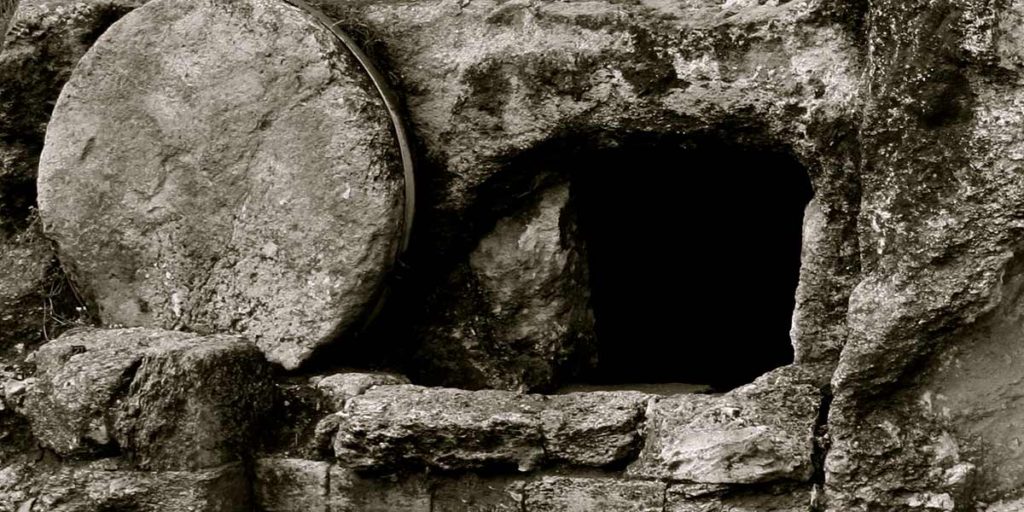Last week I attended the funeral of my aunt, June Woodbridge, who died on Easter Sunday. It was so sad, especially since her husband Colin died a few years ago, and they are survived by their two daughters. But it was so right to be united as family and friends to mourn her – and to look forward to the hope she had in Christ of eternal life with him. May she rest in peace, and rise in glory. Particular love and prayers to my cousins Louise and Claire who have now lost both parents.
The service was good and touching, and filled with the hope of Heaven. That’s good and true – the Bible reassures us that those who die go to be “with Christ”, and this is a wonderful comfort. But as Christians our hope goes further still. Heaven will be wonderful, but it’s not the end of the story.
I’ve previously written about what happens when we die according to the Bible, and Tom Wright’s Surprised by Hope is an excellent book on the same subject. The short version is that the Christian message is about the restoration of this world when Jesus’ returns, and that those whose spirits are currently with Christ in Heaven, such as my Uncle Colin and Auntie June, will at that time be reunited with their bodies, which now lie buried in a cemetery, and raised to new bodily life again (life after “life after death”, as Wright puts it). Our bodies will be transformed to be like Jesus’ resurrection body, so that they will be, in a way we can’t yet fully understand, gloriously “clothed with immortality” (1 Corinthians 15:54)
Being faced with the reality of death has made me cling to this resurrection hope even more tightly. I think that often those of us who are evangelical Christians don’t emphasise this enough, focusing on Heaven where the Bible focuses on Resurrection.
I recently heard Jesus’ resurrection described as being like the “receipt” that shows our sins have been paid for by the Cross. That’s true as far as it goes, but the Bible goes much further. Jesus’ resurrection doesn’t only validate that his death “worked”, but is an essential part of his redeeming work. By his death, our sins are taken away and forgiven; by his resurrection, we are given new spiritual life now and guaranteed new physical life, free from death forever, at the Resurrection.
If you’re not a Christian, this talk of resurrection and new creation might all seem like wishful thinking, a happy fantasy for those who can’t face the reality of death. But this is where the question of the historicity of Jesus’ death and resurrection is so crucial. The Jesus movement started because his followers were gripped with the conviction that their crucified Messiah had triumphed over death, and claimed to be eyewitnesses to his resurrection. I’m persuaded by looking at the historical record that there is no other plausible explanation for the origins of Christianity than that this actually happened. This is a hope based on reason and on historical evidence, not a leap of blind faith.
The pain of parting when a loved one dies is still very real. But there is also genuine hope and comfort knowing that I will see Colin and June again – and in knowing that God isn’t just rescuing individuals, but will heal and restore the whole world, so that we will live with him in the restored creation.
See you later, Auntie June and Uncle Colin, when Christ makes all things new.

